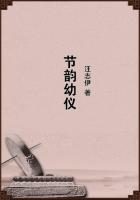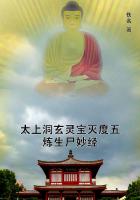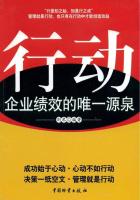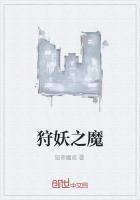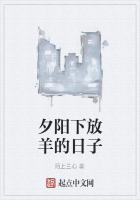Yet how little did the accommodating attitude of these gentlemen avail in silencing the newspapers. The damnable newspapers! They were here, there, and everywhere reporting each least fragment of rumor, conversation, or imaginary programme. Never did the citizens of Chicago receive so keen a drilling in statecraft--its subtleties and ramifications. The president of the senate and the speaker of the house were singled out and warned separately as to their duty. A page a day devoted to legislative proceeding in this quarter was practically the custom of the situation. Cowperwood was here personally on the scene, brazen, defiant, logical, the courage of his convictions in his eyes, the power of his magnetism fairly enslaving men. Throwing off the mask of disinterestedness --if any might be said to have covered him--he now frankly came out in the open and, journeying to Springfield, took quarters at the principal hotel. Like a general in time of battle, he marshaled his forces about him. In the warm, moonlit atmosphere of June nights when the streets of Springfield were quiet, the great plain of Illinois bathed for hundreds of miles from north to south in a sweet effulgence and the rurals slumbering in their ****** homes, he sat conferring with his lawyers and legislative agents.
Pity in such a crisis the poor country-jake legislator torn between his desire for a justifiable and expedient gain and his fear lest he should be assailed as a betrayer of the people's interests.
To some of these small-town legislators, who had never seen as much as two thousand dollars in cash in all their days, the problem was soul-racking. Men gathered in private rooms and hotel parlors to discuss it. They stood in their rooms at night and thought about it alone. The sight of big business compelling its desires the while the people went begging was destructive. Many a romantic, illusioned, idealistic young country editor, lawyer, or statesman was here made over into a minor cynic or bribe-taker. Men were robbed of every vestige of faith or even of charity; they came to feel, perforce, that there was nothing outside the capacity for taking and keeping. The surface might appear commonplace--ordinary men of the state of Illinois going here and there--****** farmers and small-town senators and representatives conferring and meditating and wondering what they could do--yet a jungle-like complexity was present, a dark, rank growth of horrific but avid life--life at the full, life knife in hand, life blazing with courage and dripping at the jaws with hunger.
However, because of the terrific uproar the more cautious legislators were by degrees becoming fearful. Friends in their home towns, at the instigation of the papers, were beginning to write them.
Political enemies were taking heart. It meant too much of a sacrifice on the part of everybody. In spite of the fact that the bait was apparently within easy reach, many became evasive and disturbed. When a certain Representative Sparks, cocked and primed, with the bill in his pocket, arose upon the floor of the house, asking leave to have it spread upon the minutes, there was an instant explosion. The privilege of the floor was requested by a hundred. Another representative, Disback, being in charge of the opposition to Cowperwood, had made a count of noses and was satisfied in spite of all subtlety on the part of the enemy that he had at least one hundred and two votes, the necessary two-thirds wherewith to crush any measure which might originate on the floor. Nevertheless, his followers, because of caution, voted it to a second and a third reading. All sorts of amendments were made--one for a three-cent fare during the rush-hours, another for a 20 per cent. tax on gross receipts. In amended form the measure was sent to the senate, where the changes were stricken out and the bill once more returned to the house. Here, to Cowperwood's chagrin, signs were made manifest that it could not be passed. "It can't be done, Frank," said Judge Dickensheets. "It's too grilling a game. Their home papers are after them. They can't live."
Consequently a second measure was devised--more soothing and lulling to the newspapers, but far less satisfactory to Cowperwood. It conferred upon the Chicago City Council, by a trick of revising the old Horse and Dummy Act of 1865, the right to grant a franchise for fifty instead of for twenty years. This meant that Cowperwood would have to return to Chicago and fight out his battle there.
It was a severe blow, yet better than nothing. Providing that he could win one more franchise battle within the walls of the city council in Chicago, it would give him all that he desired. But could he? Had he not come here to the legislature especially to evade such a risk? His motives were enduring such a blistering exposure. Yet perhaps, after all, if the price were large enough the Chicago councilmen would have more real courage than these country legislators--would dare more. They would have to.
So, after Heaven knows what desperate whisperings, conferences, arguments, and heartening of members, there was originated a second measure which--after the defeat of the first bill, 104 to 49--was introduced, by way of a very complicated path, through the judiciary committee. It was passed; and Governor Archer, after heavy hours of contemplation and self-examination, signed it. A little man mentally, he failed to estimate an aroused popular fury at its true import to him. At his elbow was Cowperwood in the clear light of day, snapping his fingers in the face of his enemies, showing by the hard, cheerful glint in his eye that he was still master of the situation, giving all assurance that he would yet live to whip the Chicago papers into submission. Besides, in the event of the passage of the bill, Cowperwood had promised to make Archer independently rich--a cash reward of five hundred thousand dollars.

